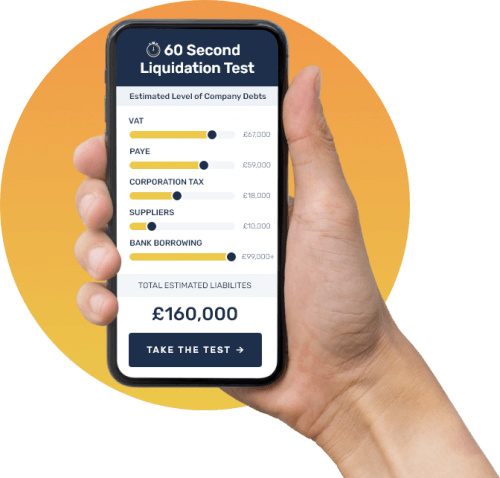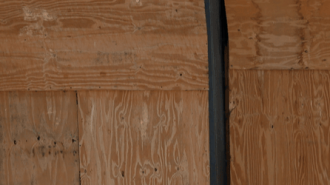What’s in a first Gazette notice when dissolving a company?
A first Gazette notice for Compulsory strike off is when an application has been made to forcibly close a company, often due to a failure to comply with its accounting and filing obligations. Compulsory strike off is most commonly initiated by Companies House themselves. When a strike off application is received, a public notice is placed in the Gazette. This is known as the first Gazette notice for Compulsory strike off.
There are three Gazettes in the UK ‐ in London, Edinburgh, and Belfast – and the business’ location determines where the first Gazette notice for compulsory strike‐off appears. So what is the reason for this notice, and what are the potential consequences for the company?
What is the purpose of a first Gazette notice for compulsory strike‐off?
When a company is forcibly struck off, a statutory process must be followed, and part of this is the first Gazette notice. The notice advises the general public, suppliers, institutions, creditors, and other parties associated with the business that it will be closed down, and enables anyone wishing to challenge the closure to object.
HMRC, the banks, and others, regularly inspect this public record for notices that may affect them, and can act if they need to stop the closure. A creditor who is owed money by the company is question is likely to object to the compulsory strike off application, as once this is passed, the company no longer exists and the creditor will therefore be unable to chase the company for the money it owes.
The first Gazette notice provides at least three months’ notice to creditors of the intended action, and if no challenges are made, a second Gazette notice appears to advertise the company’s dissolution.
Worried about your Bounce Back Loan?
If you are a limited company director worried about how you are going to repay your Bounce Back Loan, we are here to help. As licensed insolvency practitioners we can talk you through your options when it comes to repaying your outstanding Bounce Back Loan, as well as handling all negotiations with creditors on your behalf. Call our team today on 0800 063 9262 .
Why would a company be given a first Gazette notice for compulsory strike off?
If company directors have consistently failed to file tax returns and annual statements, or to comply with the Companies Act regulations, Companies House may start the strike‐off process to close down the company.
If after contacting the company there’s no response, Companies House will assume the company is no longer in business. Therefore, it’s important to act quickly if you receive a first Gazette notice for compulsory strike‐off from Companies House – the necessary action might simply involve bringing statutory filing and submissions up‐to‐date.
What happens to a company after the first Gazette notice for compulsory strike off?
The notice in the Gazette can set in motion a series of damaging events, and quickly lead to a business’ closure. As we mentioned earlier, the banks inspect Gazette entries and are likely to freeze the company bank accounts, which would effectively halt trade.
As it’s a public register, customers and suppliers may also become aware of the pending compulsory strike‐off application and remove their business or challenge the dissolution in order to recover monies owed to them.
Compulsory strike‐off also means your employees lose their jobs, and cannot claim redundancy pay. You should also be aware that ownership of any assets remaining in the company on dissolution reverts to the Crown – a historic arrangement known as ‘bona vacantia.’
As you can see, there are significant implications of receiving a first Gazette notice for compulsory strike‐off. So what should you do if Companies House attempts to forcibly dissolve your company?
Start your online liquidation today
If you have decided liquidation is the right option for your limited company, you can take the first step and begin the process online using our online portal. Starting the process is quick, simple, and can be done at a time that suits you. Your information will be submitted to your local UK Liquidators insolvency practitioner who will be with you every step of the way. Click here to start your company’s liquidation online.
What can you do if you receive a first Gazette notice for compulsory strike off?
If you don’t want your company to be forcibly struck off the register, contact Companies House as soon as possible. You’ll need to address the issues that caused them to take their action, and make a suspension application.
If your business is no longer required then you may not need to take any action, and you can let the process take its course. Additionally, a creditor might see the announcement in the Gazette and launch their own challenge to prevent strike‐off. If this is successful then the strike off application will be halted and you will then need to ensure you deal with the problems you company is facing. This may mean bringing your accounting and filing obligations up to date with HMRC and Companies House, and/or dealing with any outstanding debts you company has.
If your company does have debts that it cannot repay and you wish to bring the company to a formal closure, it’s important to use voluntary liquidation if rescue isn’t possible.
For more professional help on first Gazette notices for compulsory strike off, please contact our expert team at UK Liquidators. We’ll provide the reliable unbiased advice you need, and offer free, same‐day consultations.
If you are considering liquidation for your limited company, taking advice from a licensed insolvency practitioner can help you understand your options.
Take our 60 second test and find out




























